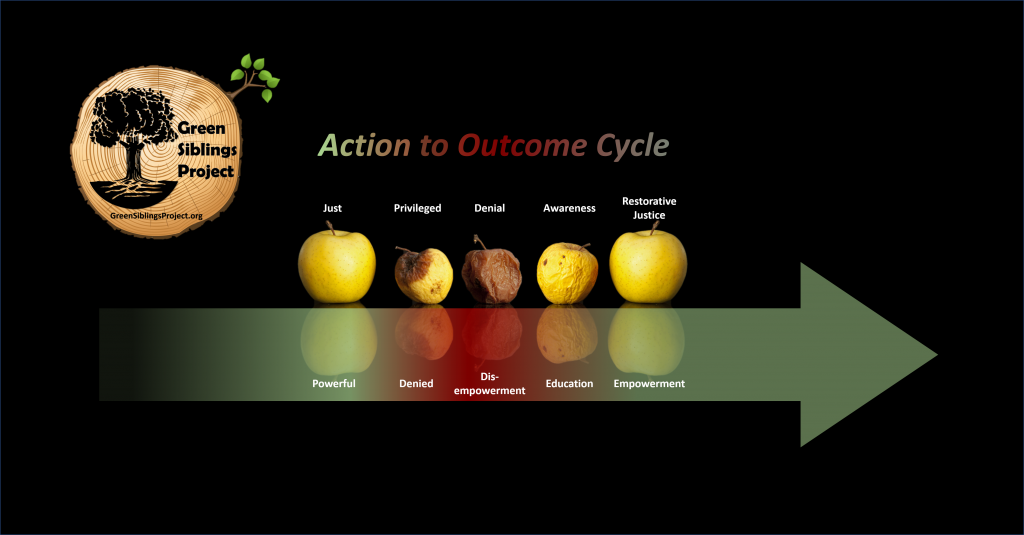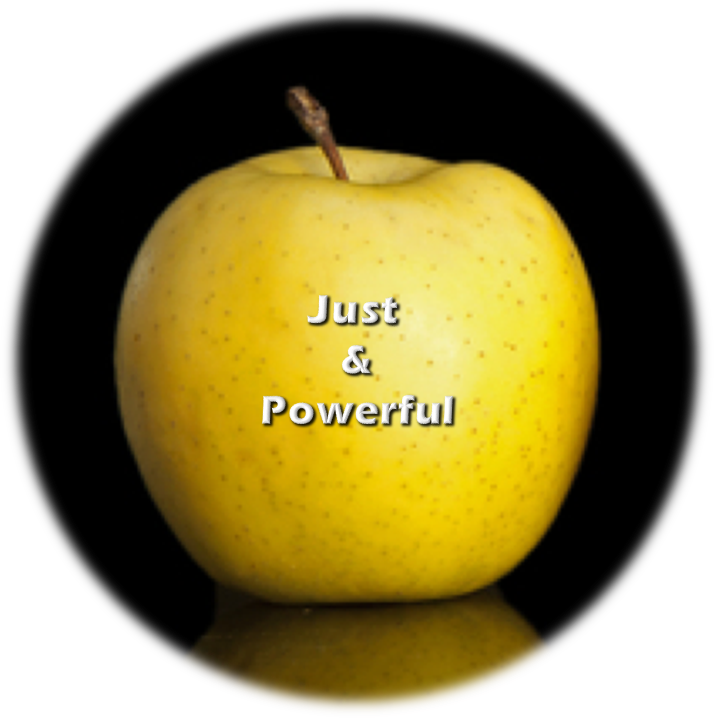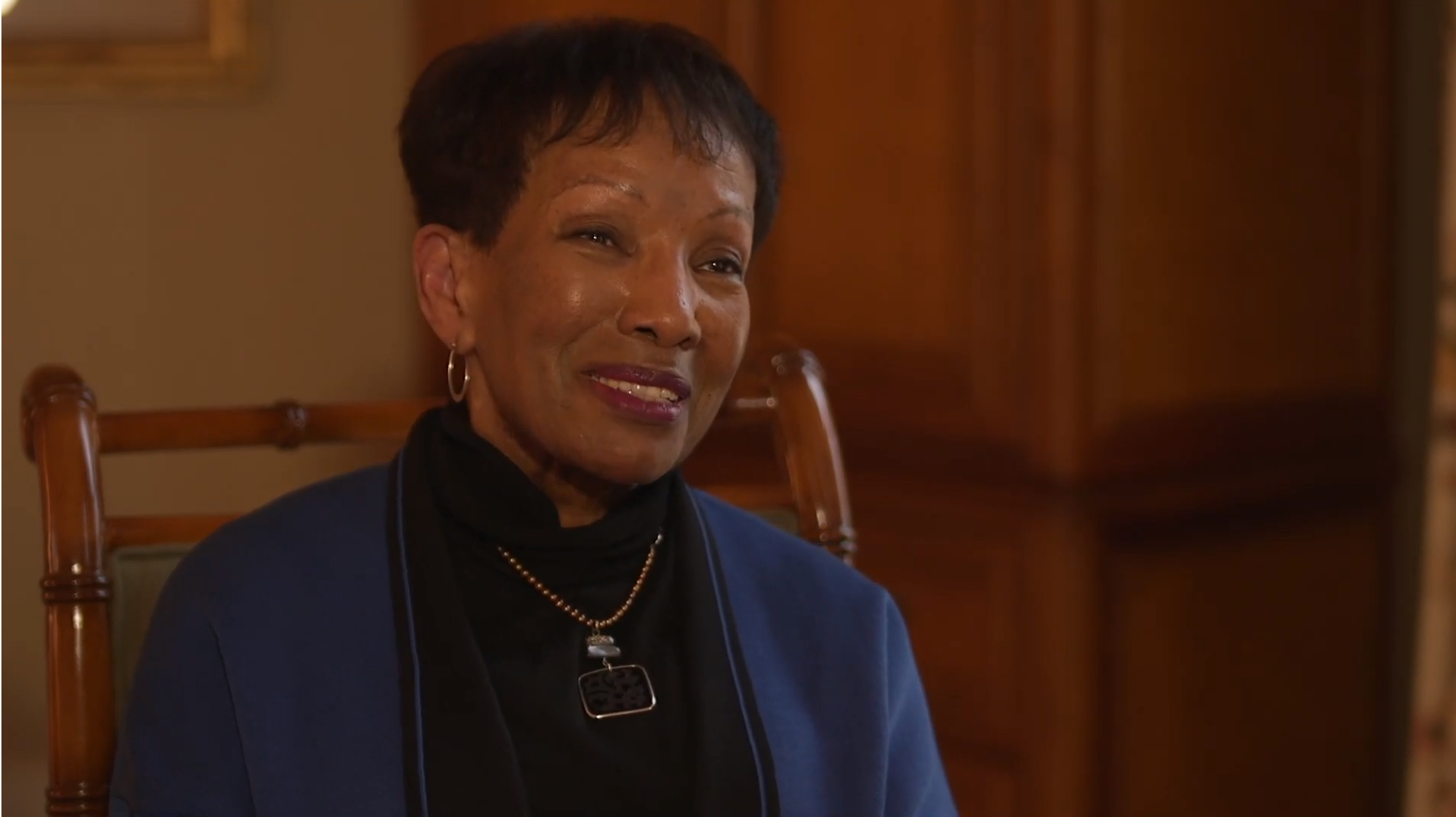
Wait! If you haven’t done so yet, please visit the
GSP Social Justice Workshop Welcome and Instructions page
first before continuing.
Action & Outcome Cycle
As we listened to the Green siblings and other interviewees share their stories and wisdom around events connected with the historic Little Rock Central High School desegregation chapter of the Civil Rights Movement, we worked to identify themes and patterns of learning that might help others to connect with and more deeply understand not only the events around Central High School desegregation, but also the patterns of action and outcome in relationship to other individuals or communities in their own lives.
At the time of the “Little Rock Nine” desegregation incidents, at least one very clear oppressor/oppressed “action & outcome” relationship was foremost: a majority of the white community was in Denial that there was any problem with segregation while most or all of the black community felt utterly Disempowered. The process of desegregation, through much pain and struggle, resulted in a growing Awareness of inequity among the white community and expanded opportunity for learning and Education among those in the black community. In the best of situations, of course, this cycle leads to actions of Restorative Justice within the white community (exemplified, for instance, by Treopia Washington receiving the degree, honor and apology her mother should have received years earlier from the University of Arkansas), and toward true Empowerment within the black community. It is also important to note that “Just & Powerful” is the inherent state of all human beings who enter the world, but that societal norms teach most of us early on that we are Privileged in particular ways (at a cost to others) or that we are Denied in particular ways due to some societal status that falls beneath others.
What is important to understand within this cycle, is that the “dominant/non-dominant” designation is fluid for each individual, depending upon the situation and the Circles of Identity involved. I may find myself on the “Disempowered” end of one situation because of my gender, and yet in a “Privileged” position given my social or economic status. Then again, I may be an individual with a growing Awareness of an inequitable relationship with another community, who feels the distinct tension of being accepted within and seen as a part of a community that is, as a whole, in Denial of that inequity.
The questions below are designed for individual journaling and for group sharing. As we share our stories and listen respectfully to the stories of others, we can grow together in understanding, and move together toward a deeper awareness of Restorative Justice actions we may need to take for the Empowerment of everyone.
Re-Read the Touchstones together
In your conversation circle, re-read and review the Touchstones together. Be certain to begin this process each time with these reminders.
Processing Each Set of Questions
In your conversation circles, take a few minutes to listen to the selected set of interviews and read the section together aloud. Then take 10 to 15 minutes to journal individually. Once everyone is finished, begin your time of sharing and listening. Take whatever amount of time is needed for everyone who wants to share to share. Remembering the Touchstones, feel free to offer an occasional “Honest, Open Question” but refrain from “fixing, saving, advising or correcting”. Most importantly, set a goal to listen deeply and develop deeper understanding of the others in your circle and of your own experiences.
Just & Powerful
Click the images above to hear the stories.

- What does it mean to be “fair” or “just” to you? Do you remember a time when you thought a situation was a great example of fairness or justice?
- What is the good side of power? What does it mean to be “powerful” in a really positive way? What does it feel like to know that you have the power to make positive things happen?
- Has there been a time when your family or community entrusted you with some sort of important power or responsibility? Did you carry that out in a way that was fair or just?
- What stories of justice or positive power are important or told often in your family or community? Why are these important?
click below to go on to page 2, “Privileged & Denied”
